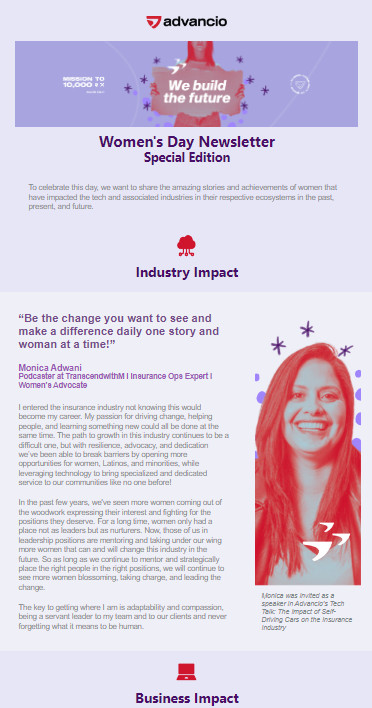Women have been at the forefront of technology advancements for centuries, from the earliest inventors to modern-day pioneers. Unfortunately, their contributions often go unrecognized or overshadowed by their male counterparts.
Why Is Diversity and Inclusion Important in Tech?
In particular, technology plays a vital role in our daily lives, and it should be accessible to everyone regardless of their gender, race, ethnicity, or background. Accordingly, when we exclude certain groups of people from the technology industry, we are limiting the potential of innovation and progress.
Additionally, diverse teams bring different perspectives and experiences to the table, which can lead to more creative solutions to complex problems. So, when people from diverse backgrounds are part of the creation and design of technology, it can help ensure that it is inclusive and accessible to everyone.
Furthermore, supporting diversity and inclusion in technology can help address issues of inequality and social injustice. By providing opportunities for people from underrepresented groups to enter and succeed in the technology industry, we can help create a more equitable society.
Supporting diversity and inclusion in technology is not only the right thing to do, but it also has tangible benefits for businesses and society as a whole. By embracing diversity and creating an inclusive environment, we can help drive innovation and progress, and ensure that everyone has access to the benefits of technology.
Pioneer Women in the Industry
Generally, the tech industry is often viewed as a male-dominated field. But female pioneers have paved the way for the industry’s success. From Ada Lovelace to Angelica Ross, these are the women have made significant contributions and shaped the world of technology.
Ada Lovelace
Mathematician and writer who is considered the first computer programmer. She worked with Charles Babbage on his Analytical Engine, a mechanical computer, and wrote an algorithm for the machine that would allow it to calculate a sequence of numbers.
Sister Mary Keller
Nun and computer scientist who is credited with helping to develop the programming language BASIC. She was a believer that computers could help people. So, she spent her career working to make computing more accessible.
Hedy Lamarr
Actress and inventor who co-created a frequency-hopping system that was used to guide torpedoes during World War II. Her invention laid the foundation for modern-day Wi-Fi, GPS, and Bluetooth technology.
Katherine Johnson
Mathematician who played a crucial role in the success of NASA’s early space missions. She calculated the trajectories for Alan Shepard’s first flight and John Glenn’s historic orbit around the Earth.
Elizabeth Feinler
Computer scientist who was instrumental in the development of the internet. She created the first online directory, the ARPANET Directory. This helped users find and communicate with each other on the emerging network.
Annie Easley
A computer scientist and mathematician who worked on NASA’s Centaur rocket project and helped to develop software for energy conversion systems.
Mary Wilkes
Computer scientist who was one of the first women to earn a Ph.D. in computer science. She worked on the design of the LINC computer used in biomedical research.
Adele Goldberg
A computer scientist who was a key developer of the Smalltalk programming language and helped to create the first personal computer.
Dr. Radia Perlman
Computer scientist who is known as the “Mother of the Internet” for her work on the development of the Spanning Tree Protocol, which helped to prevent loops in computer networks.
Grace Hopper
A computer scientist and Navy Admiral who helped to develop the first compiler for a computer programming language. Additionally, she popularized the term “debugging” when she removed a moth from a computer.
Angelica Ross
Transgender entrepreneur and computer scientist who founded TransTech Social Enterprises, an organization that provides job training and support for transgender people in the tech industry.
Final Words
Certainly, these women, and countless others, have paved the way for the advancements we enjoy today in technology. So, they prove that women have always been an integral part of the tech industry and continue to be today. Likewise, Advancio is committed to promoting diversity and inclusivity in the tech industry and celebrating the women who helped to build the future of technology.

Subscribe to our Newsletter and receive our full Womens Day special edition issue!
